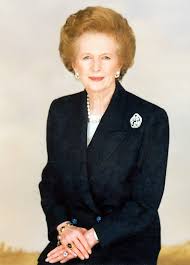The Enduring Legacy of Margaret Thatcher

Introduction
Margaret Thatcher, Britain’s first female Prime Minister, served from 1979 to 1990 and remains a polarising figure in British history. Her policies and leadership style transformed the nation during a time of economic turmoil and have left a lasting impact on both the Conservative Party and the broader political landscape. Understanding her legacy is vital as it continues to shape contemporary debates about governance and economic policy in the UK.
Thatcher’s Policies and Reforms
Thatcher, known as the ‘Iron Lady’, was a proponent of neoliberal policies, advocating for free markets, reduced government intervention, and privatisation of state-owned industries. Her government is credited with implementing serious economic reforms that aimed to combat high inflation, unemployment, and stagnation. She famously championed policies such as the sale of council houses, deregulation of the financial sector, and a reduction in the power of trade unions. These initiatives transformed the British economy, leading to a focus on entrepreneurship and individual responsibility.
Controversy and Criticism
Despite her successes, Thatcher’s policies were met with considerable opposition. Critics argue that her focus on free-market principles exacerbated social inequality and led to the decline of traditional industries, particularly in the North of England. The miners’ strike of 1984-85 exemplified the tensions between her government and trade unions, resulting in widespread protests and conflicts that highlighted the divisions within British society. Thatcher’s foreign policy decisions, including her strong stance against communism and pivotal role in the Cold War’s conclusion, also sparked debate regarding Britain’s role on the global stage.
Thatcher’s Enduring Influence
Thatcher’s impact is still felt in British politics today. Her leadership style and ideological convictions have influenced many modern Conservative leaders, shaping party policies even after her departure from office. The current government continues to grapple with the legacy of her economic reforms, particularly concerning austerity measures and public spending. Moreover, her strength as a female leader set a precedent that has inspired generations of women in politics around the world.
Conclusion
Margaret Thatcher remains a pivotal figure in the history of British politics. Her tenure as Prime Minister was marked by significant economic shifts and ideological battles that continue to resonate. As new challenges arise, understanding Thatcher’s contributions, both positive and negative, is essential for comprehending the past and shaping the future of British policy. Her legacy invites ongoing debate about the balance between free enterprise and social equity, a conversation that is crucial in today’s political climate.
